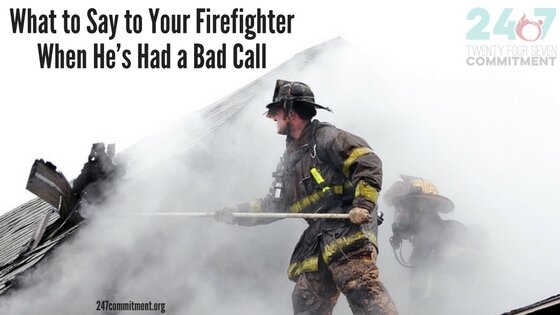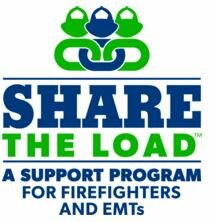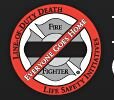
What to Say to Your Firefighter When He's Has a Bad Call
Difficult calls and first responders....
What many don’t understand is that (the experience) produces chemical changes in the body (on the hormonal level), which make it difficult, if not impossible to simply “get over it”.
Every first responder family needs to understand what happens in the brain.
Click here to read this article and share it with your loved ones.
PTSD
Irritability. Bad dreams. Depression. No emotions at all. On edge. Outbursts. Trouble sleeping. Flashbacks. Anxiety. Self-destructive behavior. If you notice any of the above symptoms sounding all too familiar, either for your spouse or yourself, you may be facing Post Traumatic Stress Disorder.
Have you ever gone to a loud, energetic public place or a social engagement and you or your spouse suddenly gets tense, drinks in excess to relieve anxiety, or just wants to leave as soon as you arrive?
Post Traumatic Stress Disorder can present itself in many different ways depending on the person. The person affected by PTSD may not be able to or be ready to recognize the symptoms within themselves. As a spouse, some things you may notice in your loved on are:
- Irritability prior to a social event
- Restlessness in crowds or loud places
- An inability to focus
- Constantly scanning areas
- A sudden, drastic change in mood that may seem like it came out of nowhere
- Obsession over details of packing, planning, preparing for a trip, etc.
- Intentionally secluding themselves
- Drinking more than usual
- Withdrawing from usual activities
- Sleeping all the time
- Short fused
- Unwanted persistent memories
- Loss of sex drive
- Sense of claustrophobia in public places
- Loss of appetite
What You Can Do as a Spouse
PTSD can take a toll on even the healthiest of marriages.
Every day can be a challenge to get through for both spouses. As a spouse of someone affected by PTSD there are ways you can help your first responder feel more comfortable.
Let them go. If they are feeling uncomfortable at an event, as them if they would like to leave. If they choose to leave, let them go. Don't force them to stay. This usually exacerbates the tension they are already feeling.
Right place, right time. Don't bring up big stuff or address issues with your spouse in public, during times of great stress for them, or in unfamiliar surroundings.
Give them time. Give your spouse the space and time needed to heal privately, but be close by for when they are ready to talk or need support. Allow them to feel their emotions when they are ready. There is no set process or timeline a person with PTSD follows.
Educate. If you do want to talk to them in a safe, familiar place, be sure to research and read as much as you are able prior to the discussion. Be prepared. There are many things you might say that seem normal to us and would not affect someone with PTSD, but it may set off a trigger in those who are struggling with it.
Get professional help. We aren't all capable of being everything to everyone. This is nothing personal. PTSD may be better addressed with your spouse by a professional.
Reaching Out for Help
There will be times in life when we can't do it alone. This may be one of those times. Now is not the time to shy away from asking for help. Here are some good resources that may be able to assist you in working through the trials PTSD brings.
Join a 24-7 COMMITMENT Community
We all face tough times in life that we get through with support. Build a strong foundation of support now. Join the Fire Wife Sisterhood (women) or the Honor Guard (men) to receive support, make lifelong friendships, and strengthen yourself in the fire life. Within these communities, there are specific support groups of other firefighters and their families who are going through, or have been through, similar situations.
You don't have to go through this alone. Lean on the Sisterhood and Brotherhood and come through the challenges of life with those who understand what it is like to be a part of the first responder lifestyle.

LATEST POSTS:
- Stock Your Freezer – Make One Freeze One Challenge
- Top Essential Oils for a Fire Family – Destress, Detox, and Degunk
- Join Us For The Power of a Praying Fire Wife
- Detoxing Your Fire Family
- Your Fire Family’s Health: Can you fix a bad mood?
PARTNERS:



